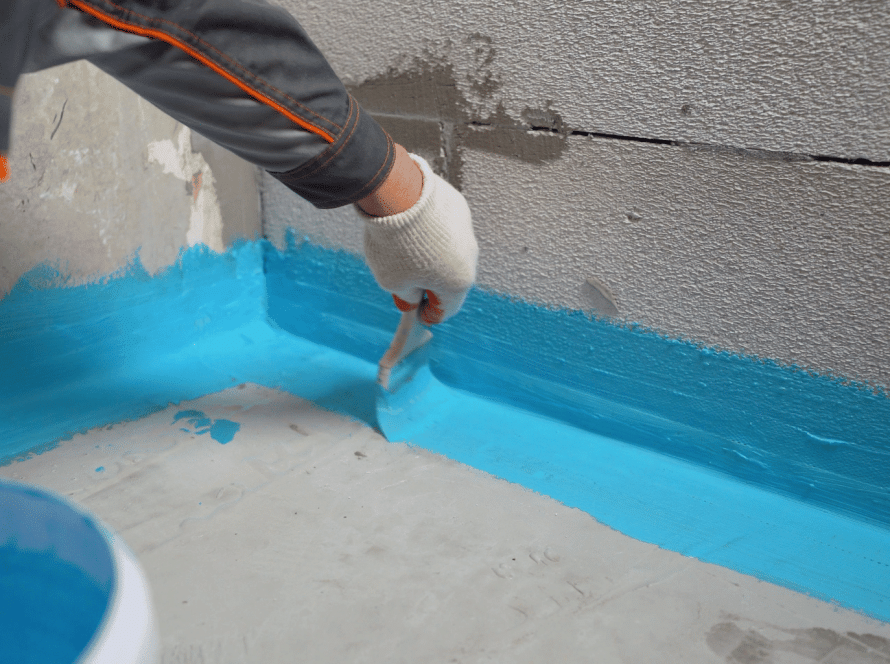One of the best methods of enhancing the total value of your house is through a basement remodel. Regardless of whether you are thinking of selling in the near future or simply want to make your living environment more comfortable, there are a number of advantages to finishing or renovating your basement. But to what extent can a basement remodel add value? In this guide, we will discuss the elements that influence the return on investment(ROI) of a basement remodel and how to maximize its value.
How Much Does a Basement Remodel Cost?
Remodeling a basement can cost a lot or a little, depending on a number of factors, including the size of the space, the extent of finishes you select, and the nature of the remodel you are pursuing. The average cost of a basement remodel is between $10,000 and $50,000, although there are more expensive remodels in the higher end of the spectrum.
Basic Remodel: A basic remodel can be between $10,000 and $20,000. Such a remodel usually involves finishing the walls, laying a floor, and installing simple lighting. It is aimed at achieving functionality of the space without being too luxurious.
Mid-Range Remodel: A mid-range basement remodel can range between $20,000 and $35,000. This usually incorporates more luxury materials, including superior flooring, custom cabinets, and lighting. It can also include a bathroom or wet bar at this price.
High-End Remodel: The cost of high-end basement remodels ranges between $35,000 and $50,000 and above. This comes with high-quality finishes, high-quality flooring, custom-built items, such as a home theater or kitchen, and high-end cabinets.
How Much Value Does a Basement Remodel Add?
A basement remodel has a range of 70% to 75 % in the return on investment (ROI). This implies that out of every $10,000 used in remodeling a basement, you will be able to add $7,000 to $7,500 to the value of your home. Nevertheless, there are a number of factors that determine the amount of value that a basement remodel would add to your home.
Location of the Home
The place where you live is very important in determining the value that a basement remodel can add. A finished basement can be a tremendous asset in a very desirable real estate market, especially in an urban or suburban setting where space is at a premium. In such regions, purchasers of houses are usually ready to spend extra money on extra livable space.
The added value might not be so high in rural areas, or in a less competitive market. Although the remodel will still add value to your home, it might not give you the same ROI that it would have given in a more competitive market.
Quality of the Remodel
The value added by a basement remodel will also be directly affected by the quality of the finishes and craftsmanship. A remodel with high-quality materials, such as high-end flooring, custom cabinets, and luxurious fixtures, will yield a greater ROI than a basic remodel with less expensive materials.
You may want to invest in materials that are long lasting and durable that will add to the overall look and functionality of the area. When the remodel is properly designed and implemented, it will not only add value to your house, but it will also enhance its attractiveness to prospective buyers.
Type of Basement Remodel
The kind of basement remodel you opt to do also determines the extent to which it will add value. Some of the common basement remodels and their average effect on home value are listed below.
Finished Basement: The conversion of an unfinished basement into a complete living space has the potential to yield the best ROI. Depending on the scope of the remodel, this can increase the value of your home from $15,000 to up to $50,000.
Basement Bedroom: Creating an additional bedroom in your basement is among the best methods of increasing the value of your home. The presence of an extra bedroom especially in a small house can add up to 7% to 15% to the value.
Basement Bathroom: Another high-value remodel is to add a bathroom in the basement. Basement bathrooms add 5% to 10% to the value of your home, particularly in a home with an expanding family or when the basement is in use as a guest suite or a rental unit.
Basement Apartment: Converting your basement into a rental or accessory dwelling unit (ADU) can offer a high payoff, particularly in high-rental markets. This choice has the potential to add long-term value in the form of rental income and can add up to 20%to the resale value of the home in certain markets.
Real Estate Market Conditions
The existing condition of the real estate market may also influence the extent of value that a basement addition or remodel can have. A finished basement is more likely to have a higher ROI in a seller’s market where there is excessive demand in homes and little supply. Consumers in such markets are more likely to pay high prices on houses that provide extra living areas.
The ROI of a basement remodel can be lower in a buyer’s market, which has a higher inventory and a lower demand. Although it will still add value to your home, it may not give you the same returns as it would give you in a competitive market.
How to Maximize the ROI of Your Basement Remodel
In order to get the best out of your basement remodel, the following tips can be considered:
Emphasis on Function: Buyers will tend to value a livable and usable basement. It is best not to invest too much in features that won’t be of interest to a wide variety of potential buyers, like overly specialized rooms or luxurious finishes.
Select Practical, Long-lasting Materials: Select materials that are practical and durable, particularly in those places that tend to be wet, such as the basement. Choose materials that are easy to maintain and that will last the test of time.
Remodel to Match Your Home: Be sure that the remodel is consistent with the style of your home. A contemporary basement remodel may not be attractive to buyers when the rest of the home is more traditional and vice versa.
Stay Within Your Budget: Avoid over-improving your basement. Spending more money on your basement area than your home is worth can reduce your return on investment. Make sure the remodel is in line with the value of the home and the neighborhood.


